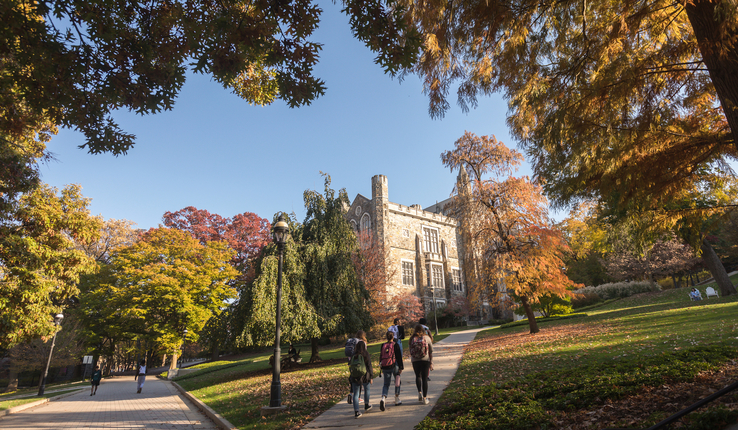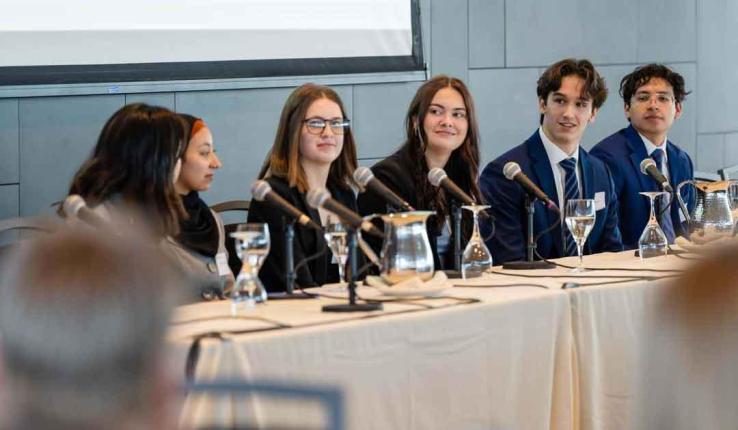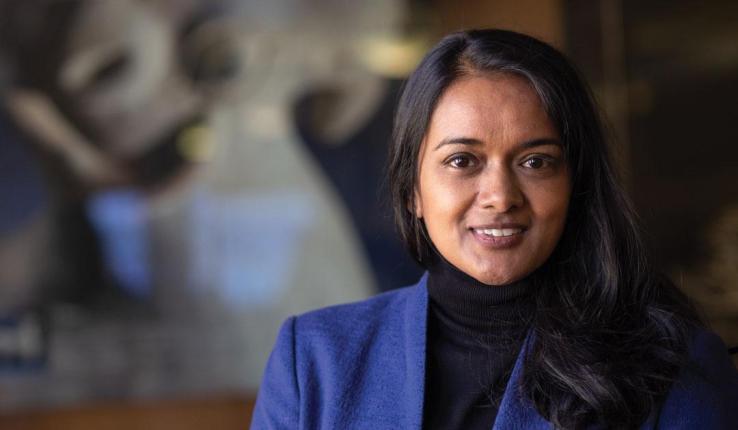Undergraduate research opportunities for women engineering students at Lehigh will expand next year, thanks to a new $204,000 grant from the Clare Boothe Luce Program for Women in STEM.
The money will be matched by an additional $113,000 from the P.C. Rossin College of Engineering and Applied Science and used to support 18 high-achieving undergraduate women.
“This grant will allow more of our women engineering students to realize their research aspirations,” said professor Sabrina Jedlicka, the Rossin College’s associate dean for academic affairs. “One of the hallmarks of a research-active academic institution is offering students opportunities to experience and be integral players in ground-breaking STEM work. The additional funding will help clear barriers to women’s participation in research as our college strives for greater equity and inclusion.”
Grant opportunities are expected to become available in 2022 and will continue for the next three years, with six students chosen each year for an immersive two-year experience. Each award includes an annual stipend, a research account and a travel award for scholars presenting in professional conferences. Scholars will commit to 10 weeks of full-time research in summer and six to 10 hours per week of part-time academic year research in each year of their awards.
In addition, Clare Boothe Luce Research Scholars will participate in the college’s annual David and Lorraine Freed Undergraduate Research Symposium. Scholars will also serve as mentors to future women scientists and engineers through the weeklong summer CHOICES camp (Charting Horizons and Opportunities in Careers in Engineering and Science) for middle-schoolers.
Students may apply during their first or second undergraduate year. Jedlicka, an associate professor of bioengineering and materials science and engineering, will lead the application process, which will also include an advisory committee consisting of members of Lehigh’s ADVANCE Center for Women STEM Faculty.
Applications will soon be accepted through the Rossin College website. For now, interested students should contact Jedlicka for more information.
The selection committee will connect students with faculty mentors who share their research interests and who will advise them as they engage in experiential learning during the summer and academic year.
Though the undergraduate research awards will benefit individual recipients directly, they also further broader goals, according to Jedlicka, including raising the visibility of women’s research success, expanding women’s awareness of STEM career opportunities and graduate-education paths, and eliminating misconceptions about research capabilities or performance historically tied to gender.
“This award is a small step in the right direction. Having more opportunities to bolster the careers of women engineers is an amazing gift that will continue to pay it forward,” she said. “Most women faculty in engineering had very few female role models. We persisted, but many of our peers did not. The more women we have interested in research and engineering, the closer we will eventually move toward gender balance in STEM.”
Lehigh has made strides in increasing the number of women involved in its STEM programs.
Over the past 10 years, overall undergraduate enrollment for women in engineering has risen from 24.3% for the class entering in Fall 2010 to 32.3% in Fall 2020. In the same period, women’s enrollment has risen in integrated and dual degree programs housed in the Rossin College, such as Computer Science and Business, from 10.4% to 27.4%
The increased enrollment in STEM courses is overdue, Jedlicka said, as women make up approximately half of the general population, but their representation in engineering fields—where solutions to problems are designed and executed—is far less.
“Women are often stakeholders in these problems, yet, for example, it’s not uncommon that a drug or implantable device used to treat women has never been tested on women,” she said. “Having more women in engineering fields—and specifically in leadership roles—is critical to ensure that we don’t repeat past engineering mistakes and that we design more inclusive solutions.”
The university also received a Clare Boothe Luce Program grant in 2013 that provided independent research opportunities for 28 high-achieving undergraduate women in STEM and encouraged more women to pursue graduate studies in engineering research. As of this year, 13 of those recipients are doctoral candidates at prestigious institutions, including Carnegie Mellon, Cornell, Johns Hopkins, Northwestern, Vanderbilt and Virginia Tech. The cohort includes two women who went on to become National Science Foundation Graduate Fellows and seven who have completed or are pursuing master’s studies.
The Clare Boothe Luce Program for Women in STEM has been awarding grants since 1989, becoming the single most significant source of private support for women in science, mathematics and engineering in higher education in the United States, according to the program’s website.
Clare Boothe Luce was a playwright, journalist, and U.S. ambassador to Italy, as well as the first woman elected to Congress from Connecticut. She was also the widow of Henry Luce, who built a publishing empire with “Time,” “Fortune” and “Life” magazines.
In her bequest establishing the program, Clare Boothe Luce sought to encourage women to enter, study, graduate and teach in science, mathematics and engineering.





